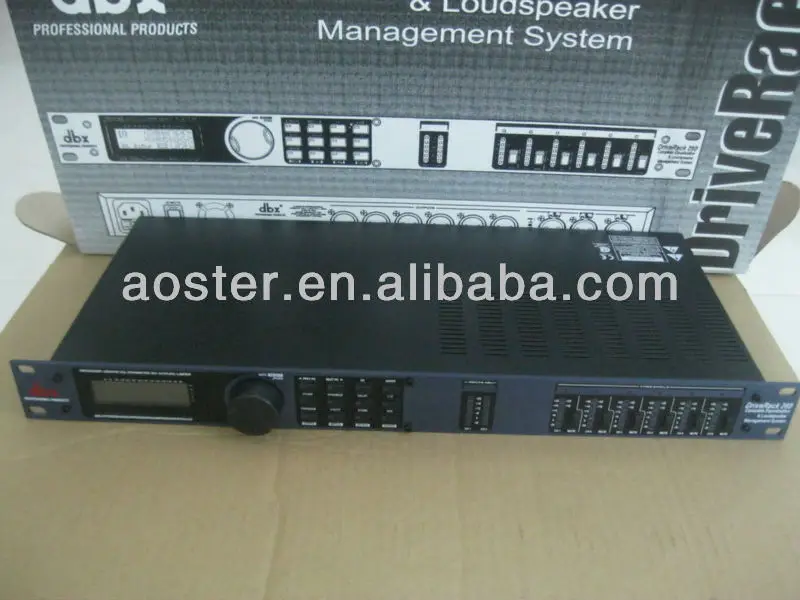

The resulting sound is balanced and wonderful right off the bat.Īs we know whenever you experiment and change crossover points or filter slopes, you must then re-EQ the system. There’s no loud, obnoxious pink noise- just a few rapid (2-second) frequency sweeps from (3) mic positions, and the unit instantly overlays about eight parametric EQ’s to smooth out the nasties. The Behringer’s auto-EQ is comparatively tedious, slow and cumbersome, with pink noise to endure- downright primitive compared to the slick DBX auto-EQ.

The wizards make setup easy, and the control screens are intuitive and easy to use. With the DBX, all functions are wirelessly controllable using a smart phone/tablet app, and I use my Ipad.
#Dbx driverack 260 aes serial
To be fair the Behringer crossover does have a computer interface, but I couldn’t use it because its outdated serial port won’t connect to my laptop, or any laptop newer than 10 years old. The DBX’s wireless remote user interface is hands-down better than the Behringers’ front-panel intefaces. The DBX may spec a little better but I rate them equally for inaudible noise floor. Below are my initial impressions:īehringers are often frowned upon by audiophiles, but they served me well for many years and I found them to be dead quiet and crystal clear. I still have a lot to learn about the Venu 360, and the Behringers are all I know to compare it to. This will not be an in-depth, dispassionate, or measurement based review. I chose the Venu 360 over less expensive PA2, only because I needed the Venu's digital inputs to accept the digital out from my Logitech Transporter. I recently replaced the Behringer DEQ2496 EQ & DCX2496 crossover, driving my homebuilt hybrid electrostats & Ripole subs, with a DBX Driverack Venu 360 crossover/EQ.


 0 kommentar(er)
0 kommentar(er)
